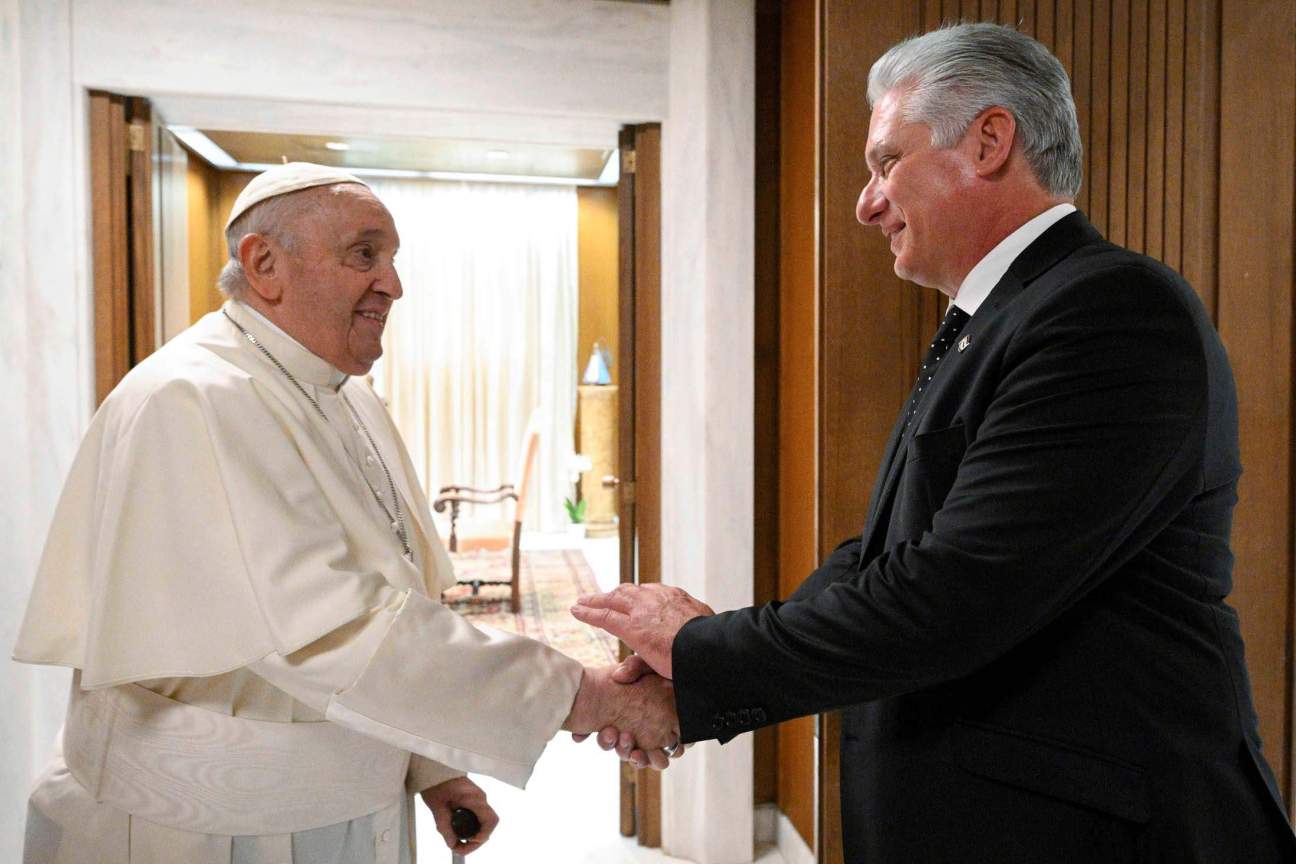Vatican diplomacy tested as US-Cuba deal unravels
A Vatican-brokered deal led to Cuba’s removal from the US terrorism list but renewed sanctions cast doubt on lasting diplomacy.
Among the flurry of announcements made by Joe Biden at the end of his presidency was something that caught many by surprise: the decision to remove Cuba from the list of state sponsors of terrorism. In return, Havana agreed to release 550 prisoners, many of whom were jailed for taking part in anti-government demonstrations in 2021.

Cuba’s economy has been hit by US sanctions and increasingly inconsistent supplies of fuel, funds and food from its traditional allies in Russia, Venezuela and China. Biden’s move promised a glimmer of hope, particularly for Cuba’s fledgling private sector, which has been particularly hard hit by the economic downturn. And though Donald Trump reimposed US sanctions on Cuba during his first day in office, Cuba’s president Miguel Díaz-Canel (pictured, on right, with Pope Francis) appears to have maintained its side of the deal by pressing ahead with the prisoner release.
This is probably because of the standing of the third party that brokered the original deal: Vatican City. “What is interesting in a diplomatic sense is the Holy See’s perceived neutrality,” Michael Higgins, a professor of Catholic history at the University of Toronto, tells monocle. “It’s why countries that have no history of Catholicism still want ambassadors to the Holy See.”
The Vatican has diplomatic links with 182 countries. While its diplomats’ recent attempt to reset US-Cuba relations has been undone, their work has become more valuable as international relations have deteriorated. “In a world that constantly seems on the road to collision, you need stabilising powers,” says Higgins. As the world gears up for a year of potentially complex peace negotiations in Ukraine and the Middle East, the parties involved might benefit from seeking divine intervention.



